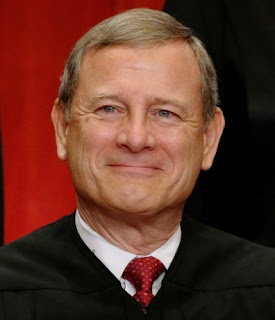But a part of me is constantly reminding myself that we haven’t heard the final word yet, and it’s always possible the ultimate court will come down in favor of the president – just because he’s the president from a certain political party.
WILL
THE SUPREME Court of the United States use its 5-4 conservative-leaning
majority and ultimately feel like issuing an order striking down “sanctuary
cities” because it’s the desire of Donald Trump?
There
already are those people who think the Supreme Court is inclined (possibly
Wednesday morning) to rule against Illinois political interests in a case now
pending as to whether public employee labor unions have a right to require
government workers to join and pay dues.
Then,
there’s the ruling the high court made Tuesday morning that says Trump’s
efforts to impose travel restrictions against people from certain Middle East
countries is acceptable – no matter how much many complain about its
immorality, and how lower courts have ruled it is illegal.
Could
“sanctuary cities” wind up facing the same fate some day? It is an issue yet to
come before the high court. Yet it could also be a significant issue of sort
come 2019.
THE SUPREME COURT, in the opinion issued Tuesday, said the president has the authority to get involved through executive orders in immigration policy, and also said it wasn’t terribly interested in hearing arguments about discrimination against Muslims.
But
in the part that particularly amazes me, Chief Justice John Roberts wrote in
the court’s opinion, “we (the court) express no view on the soundness of the
(Trump immigration) policy.”
Meaning,
the idea of the judicial branch providing a balance (specifically, being the
force that keeps government officials from overstepping their bounds when they
react too far) isn’t one that the high court particularly feels like honoring.
That
is a scary thought, if you think about it.
BECAUSE THE MAJORITY of our society that is relying on the concept of “checks and balances” to keep a Trump presidency from imposing serious, and lasting, harm could find themselves let down beyond belief.
Just
like what could happen in the case of Janus vs. AFSCME. That’s the case based
on a lawsuit originally filed by Mark Janus, an Illinois government employee
who resents the idea that he had to join the labor union in the first place.
His
lawsuit seeks to strike down any such membership requirements in order to have
his job, and theoretically could require the union to have to go back to each
of its members and seek their permission to charge them union dues.
With
anti-labor forces hoping they can persuade many workers to refuse to pay up,
meaning the unions would lose significant revenues and be undermined to the
point where they would become ineffectual.
MANY
THINK THE current partisan leanings of the court will result in Janus
prevailing – with those of us inclined to support labor hoping for a partisan
political miracle.
Which also is why I’m wondering what will become of the sanctuary cities issue – which thus far the courts have said the federal government is overstepping its bounds in trying to cut off federal funding to those cities wishing to protect all people from police harassment.
That
is how it is perceived – as in local cops getting involved in immigration
issues that they technically have no jurisdiction over and no particular
knowledge about.
Those
who support the “sanctuary city” concept believe it’s a matter of federal
immigration officials doing their own jobs when it comes to immigration law.
Will partisan politics cause the high court to ultimately disagree?
-30-




No comments:
Post a Comment